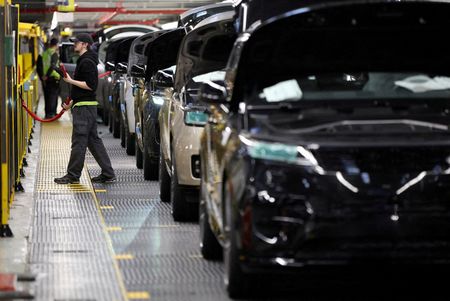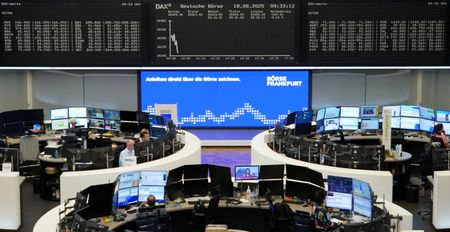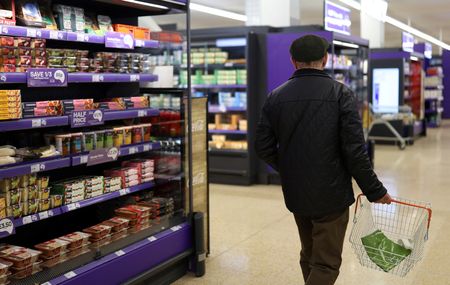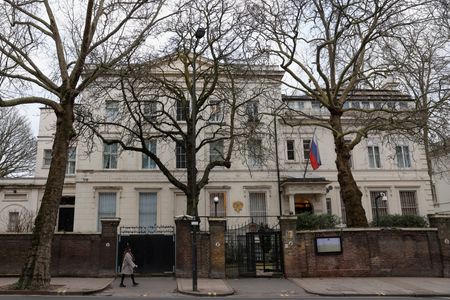By Sam Tabahriti
LONDON (Reuters) – Britain’s largest carmaker, Jaguar Land Rover, said a pause in production due to a cyber attack would now stretch to September 24, extending the stoppage at its British plants to more than three weeks.
The luxury carmaker, owned by India’s Tata Motors, said it shut down its systems in early September to contain the hack that has severely disrupted its retail and manufacturing operations.
Its three factories in Britain, which usually produce about 1,000 cars per day, will now not restart until September 24, the company said on Tuesday. It has told many of its 33,000 staff to stay at home.
“We have taken this decision as our forensic investigation of the cyber incident continues, and as we consider the different stages of the controlled restart of our global operations, which will take time,” JLR said in a statement on its website.
There is concern about the financial impact of the stoppage on JLR’s British supply chain, which includes many smaller companies and supports 104,000 jobs across the country. The Unite trade union has warned of job losses and said government support would be needed given the lengthy stoppage.
British newspaper The Telegraph reported on Monday that the production shutdown could last until November, although JLR said this was not its position.
JLR has said the incident has affected some data, although it remains unclear whether it involved customers, suppliers or internal systems.
The breach was the latest in a string of cyber and ransomware attacks targeting companies around the world. In Britain, household names including Marks & Spencer and Co-op have fallen victim to increasingly sophisticated breaches.
The disruption comes as JLR faces broader challenges, including weaker demand in China and Europe, and delays to the launch of its electric vehicle models.
In July, JLR reported an 11% drop in quarterly sales, partly due to a temporary pause in U.S. shipments after tariffs were imposed. Although exports resumed in May, the company cut its profit margin target for fiscal 2026 to 5%-7%, down from 10%, citing ongoing trade uncertainty.
(Reporting by Sam Tabahriti in London and Pushkala Aripaka in Bengaluru; Editing by Sarah Young, Sherry Jacob-Phillips and Alex Richardson)











